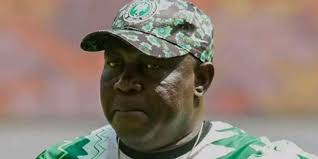Justin Madugu has recently been appointed as the interim head coach of Nigeria’s Super Falcons, following the departure of the previous coach. His appointment comes at a crucial time for the team, which is preparing for key competitions and seeking to build on its previous successes. Madugu’s experience in Nigerian women’s football, particularly with the national under-20 team, positions him as a suitable candidate to lead the Falcons through this transition. His previous roles have equipped him with valuable insights into player development and tactical strategies that can benefit the team.
Justin Madugu’s History in Sports and Qualifications
Justin Madugu has made significant contributions to Nigerian women’s football over the years, particularly through his role with the national under-20 team, where he helped develop young talents. His coaching career has been characterized by a focus on nurturing players’ skills and fostering a competitive spirit. Madugu’s qualifications include extensive coaching certifications, such as the Confederation of African Football (CAF) licenses, which are crucial for coaching at national and international levels. His experience in youth development and knowledge of women’s football dynamics position him well to lead the Super Falcons as they aim for greater success. One of the challenges Madugu faces is addressing the recent criticisms surrounding the team’s performance in international tournaments. After a disappointing showing in the 2023 FIFA Women’s World Cup, where the Falcons did not progress beyond the group stage, there is an urgent need for a revival in form and morale. The players will be looking for guidance and fresh strategies under Madugu’s leadership, as they aim to qualify for the next World Cup and assert their dominance in African competitions
Comparison of Coaching Success Between Male and Female Coaches
The question of gender in coaching has been a topic of discussion in many countries, particularly regarding its impact on team performance. Research suggests that while both male and female coaches can achieve success, the representation of female coaches in high-profile positions remains low. For instance, countries like Norway have seen considerable success with female coaches leading their national teams. Notably, Hege Riise led Norway to success in the 1995 Women’s World Cup and the 1993 European Championship, demonstrating the effectiveness of female leadership in women’s football.

In contrast, many male coaches, like Phil Neville of England and Didier Deschamps of France, have also led their teams to victories in significant tournaments, including the UEFA European Championship and the FIFA World Cup, respectively. Statistically, teams led by male coaches in men’s football have more historically garnered attention and success in prestigious tournaments compared to female-led teams. However, this disparity does not diminish the success female coaches have achieved in their domains. For example, Jill Ellis led the U.S. Women’s National Team to two World Cup victories (2015, 2019), highlighting that female coaches can be just as successful, if not more so, when given equal opportunities.
Overall, the success of a national team often hinges on several factors beyond the coach’s gender, including resources, support systems, and the overall structure of women’s sports within a country.








